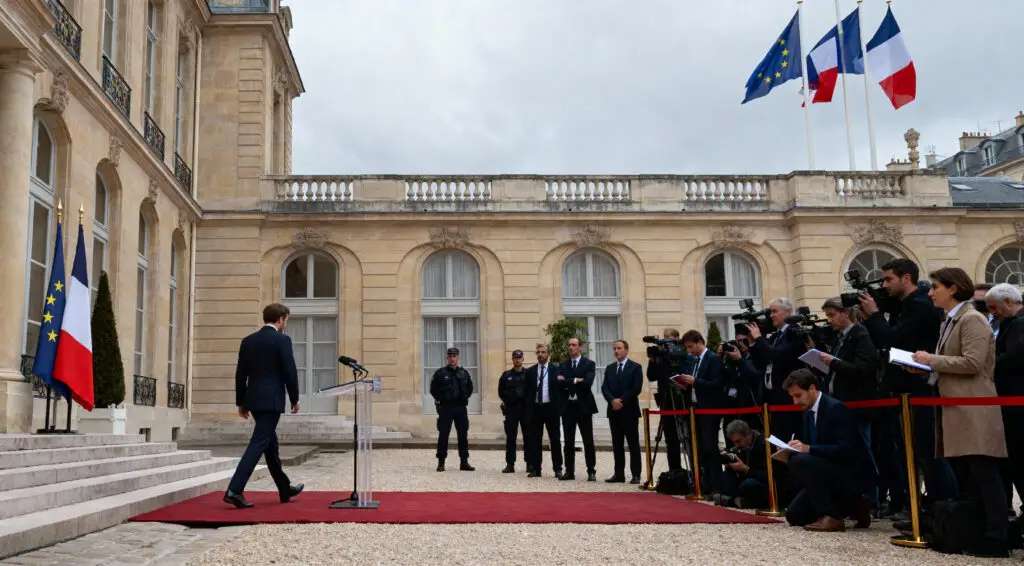Lecornu Resigns After Shortest Tenure in Modern French History
French Prime Minister Sebastien Lecornu has resigned just weeks after taking office and only hours after announcing his cabinet. The Elysee Palace confirmed President Emmanuel Macron accepted his resignation on Monday afternoon.
Lecornu’s abrupt departure deepens France’s ongoing political turmoil following months of gridlock in Parliament. His government, formed to restore stability, became one of the shortest-lived in the nation’s history. The resignation signals a major setback for Macron’s leadership and reform agenda.
Cabinet Backlash Sparks Rapid Political Fallout
Lecornu’s cabinet announcement on Sunday triggered immediate controversy from both allies and opponents. Critics condemned his decision to reappoint several ministers from the previous administration, undermining promises of renewal.
The proposed inclusion of former Finance Minister Bruno Le Maire as defence minister provoked widespread outrage. Many blamed Le Maire for France’s mounting public deficit during his tenure. Facing mounting backlash, Le Maire withdrew his nomination, calling the reactions “incomprehensible” but urging unity for national stability.
Fractured Parliament Stalls Budget Approval
Lecornu’s brief premiership collapsed under the weight of France’s divided Parliament. Efforts to pass the national budget were blocked by both far-right and far-left factions. Without majority support, the government struggled to move legislation forward amid growing debt concerns. Lecornu admitted compromise proved impossible as rival blocs refused to cooperate. The impasse underscored the broader instability plaguing French politics since Macron’s party lost its majority in 2024.
Recommended Article: Sanae Takaichi Poised To Become Japan’s First Female PM
Macron Faces Mounting Pressure from Opposition Parties
Opposition leaders immediately seized on Lecornu’s resignation to demand new elections. Marine Le Pen of the National Rally party called the government “pathetic” and urged a return to the polls. Her ally Jordan Bardella echoed the sentiment, saying his party was “ready to assume its responsibilities.” On the left, France Unbowed leader Jean-Luc Mélenchon also called for Macron’s resignation. Even centrist allies from the Republicans signalled readiness for a parliamentary dissolution if required.
Economic Markets React to Political Instability
France’s financial markets responded sharply to the political upheaval. The CAC 40 index of major French companies fell more than two percent following Lecornu’s resignation. Analysts cited investor fears over the government’s ability to pass a budget amid worsening debt conditions.
The uncertainty adds pressure on Macron to restore confidence and outline a new economic plan. Persistent instability could weigh heavily on France’s fiscal credibility within the European Union.
Macron Tasks Lecornu with Temporary Mediation Role
Despite accepting his resignation, President Macron asked Lecornu to lead short-term talks with other political parties. The discussions aim to define a “platform for action and stability” by midweek, according to the Elysee Palace.
It remains unclear whether Macron will reappoint Lecornu or select a new prime minister altogether. Constitutional provisions allow the president flexibility in reappointing the same official if political consensus emerges. The move appears designed to buy time amid deep divisions.
France’s Political Future Remains Uncertain
Lecornu’s resignation marks the fifth change of prime minister under Macron in two years. The rapid turnover underscores the difficulty of governing a fragmented political landscape. Without a clear parliamentary majority, Macron faces growing calls to dissolve Parliament and seek a renewed mandate. The coming days will be crucial in determining France’s political and economic direction. As negotiations continue, public frustration mounts over leadership instability and fiscal uncertainty.























